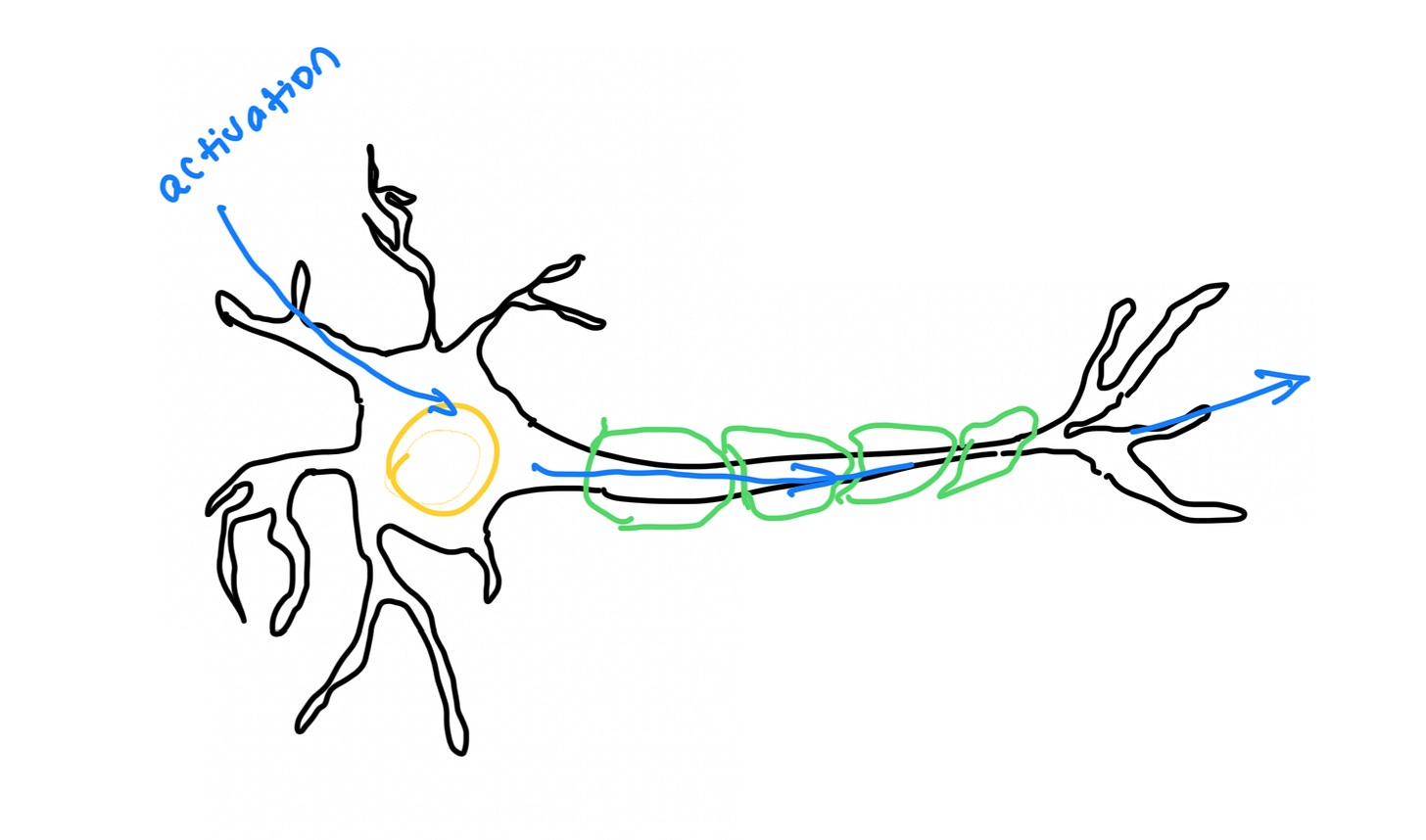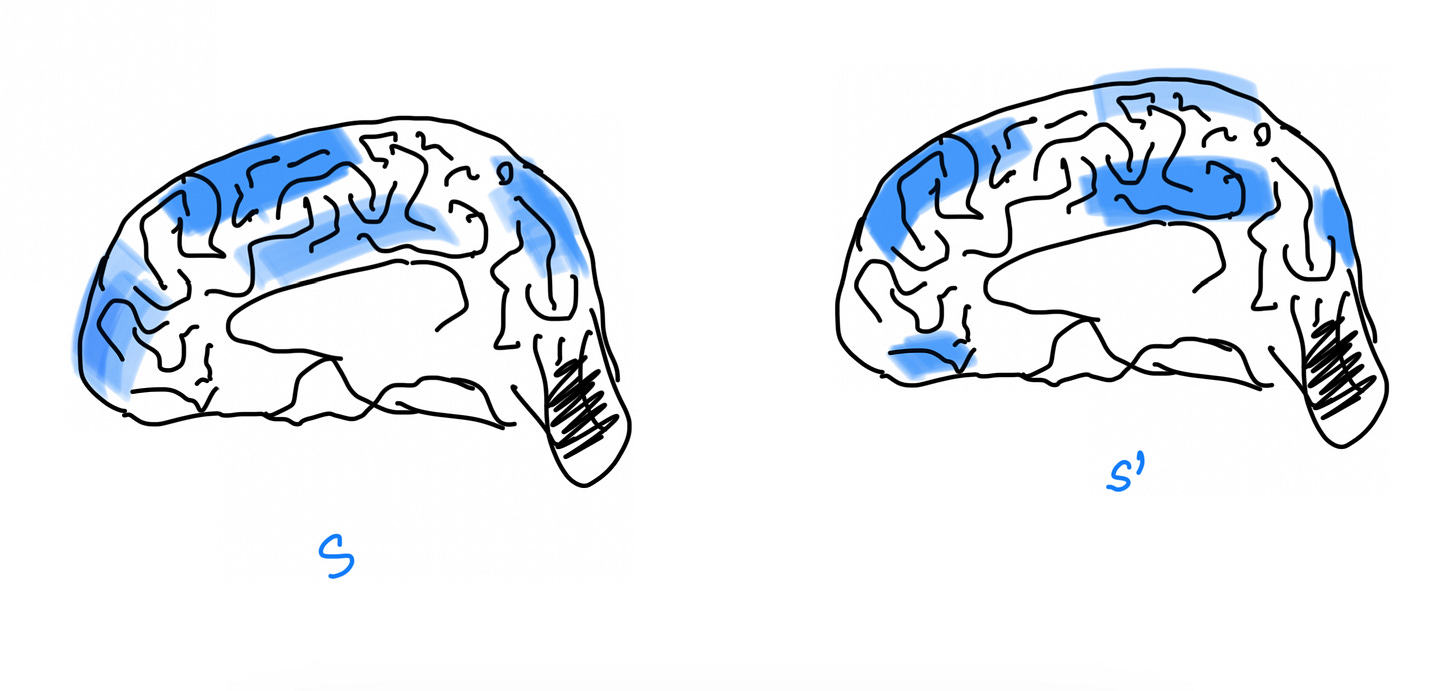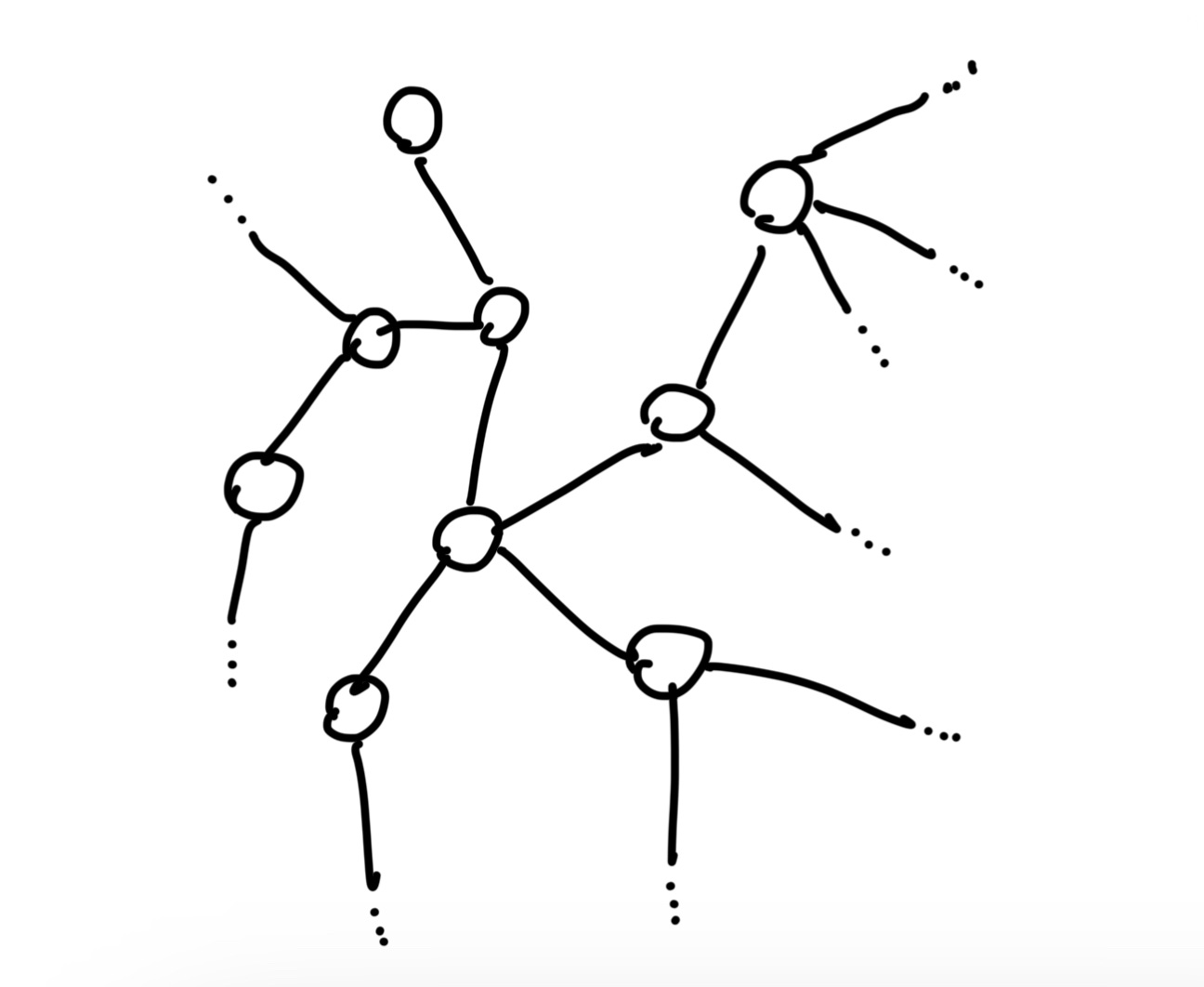This is the first part in a series I am calling "Overfitting to Reality". Here, I want to explore the nature of our experiences and how seeking out new "transcendent" experiences might lead us to new truths and enriched lives.
No account of the universe in its totality can be final which leaves these forms of consciousness quite disregarded . . . At any rate, they forbid a premature closing of our accounts with reality.
- William James
William James postulated that there are two types of consciousness - "rational" waking consciousness and a "special" hidden consciousness. The latter is one where we can go through life without suspecting its existence but get access to it with the right stimulus. This special type of consciousness is going to be the focal point here and going forward in the series. I want to argue that we must dedicate more of our lives to seeing this special consciousness because it truly offers a chance to go down the rabbit hole - see something more than just the days of our lives endured.
A Little Biology First
A neuron receives its activation potential from surrounding neurons and through the transmission of potential, it "fires". We can say that this neuron has been "activated".
The Phenomenological Statespace (TPS as I like to call it) is the statespace of all possible neuronal activations in one's brain. TPS will be the lynchpin to my consciousness argument. Imagine the statespace to be interconnected brain states like a graph. The vertices are states of the brain (a freeze frame of the brain that captures which neurons fire) and two vertices are connected if they differ from each other by at most one neuronal activation. Naturally the TPS is unique to an individual.
Here, I assume that neurons rarely decay and I treat the brain as a monolithic entity immune to any and all changes from the time you are first conscious to the time you die. Now consider the example below of the whole brain. Let's say, we take two snapshot of the brain during two activities and see the neurons "firing" in the highlighted parts of the brain. Imagine these are snapshots when participating in an activity.
This is a very crude explanation of how brain activity works. Try to look at the abstract ideas instead of the neuroscientific details.Say S corresponds to thinking about what to eat and S' corresponds to answering an MCQ. Even if you thought about what to eat multiple times in your life, the same neurons wouldn't fire. If you thought about what to eat on Monday (S) and did the same on Thursday, you are at a different state now (call it S''). So S, S' and S'' are unique states. Leaving the house for school on Day 1 and Day 120 are two different states although they might be the same "experience".
What to do with this ?
Essentially, our whole lives can be plotted as a walk through this TPS graph.
My point here is that reality is only one subset of this statespace. Our lives as we perceive them through our senses is just a small subset of this graph.There are so many possible states that we couldn't have explored in our past. There are so many that we can't explore right now. But we can explore more of this statespace going forward.
It’s no use going back to yesterday, because I was a different person then.
- Lewis Carroll, Alice in Wonderland
Imagine doing shrooms or weed or some type of hallucinogen. Imagine watching an absurd movie. Imagine listening to a song of a language you have never heard. Imagine travelling and being amongst people whose lives are completely out of shape with your own. Its impossible to completely explore their statespace but one must make the attempt to maximize one's coverage.
Why ? Because we are all artists no less.
Every child is an artist. The problem is how to remain an artist once we grow up
- Picasso.
As I grow up and myself and the people around me becoming older, I fear we're all collectively becoming more leadened. We feel, yes and go about our day but I increasingly find that we're not sharing as much about what makes us, us. Either we leave these to the algorithm recommendation gods, or we barter our creativity for convenience. I don't want to be the old man yelling at a cloud saying "oh, it was better in my time". What matters is we we do about it now - How do we change *now* ? What can we do to share our imagination now ? This I believe is the kernel of this series.
But, how do we explore ?
I'll get to the why in the coming posts but the means to explore are:
Dreams - dreams are a ubiquitous and perhaps the most easily accessible means of exploring the statespace. In his excellent post Enter the Supersensorium, Erik Hoel describes the nature of our dreams and senses. He states that dreams are no different from our sensory perceptions because our brains are essentially hallucinating in the very same way we hallucinate when we're awake. Its the same brain regions that are active. The only difference is that the waking hallucination corresponds to “reality”. It is useful to dream however. Not like parking brake "useful", more like "pencil and blank paper" useful. I will touch on these more in later parts.
Movies - In the upcoming posts, I will explore the concept of Fictions and how movies are the closest thing we have to dreaming awake. I will say this however, there is a unique joy and thrill of being in a dark room with strangers sharing your 2 hours away from the worldly vagrancies. We have to preserve this.
Hallucinogens - When the hippies said "it will expand your mind, duuuudddee!", they weren't entirely wrong. They were trying to communicate this very sentiment, but in a bro friendly manner. Psilocybin and other hallucinogens are just that. These hallucinogens loosen the barrier between primary and secondary consciousness and allow for restructuring of the world and our axioms. Once again, there is a lot of utility in this.
Travel - by travel, I don't mean the the duck-face selfies, "it"-girl poses, "travel aesthetic" type travel. The other type that seems to have been forgotten now when the only validity of an experience is sharing it. The one where you're immersed in being in an alien place. One where you're not doing things for the sake of novelty but for the hope of change. In A Time to Keep Silent, Patrick Fermor recounts his experiences living in monasteries across Europe and Turkey, "the desire for talk, movements and nervous expression that I had transported from Paris found, in this silent place, no response or foil, evoked no single echo; after miserably gesticulating for a while in a vacuum, it languished and finally died for lack of any stimulus or nourishment."
This is the travel that has the maximize the expansion of our worlds.
Music - I have it on good account from friends of mine who have spent their childhoods' immersed in music that their character has changed because of what they learnt playing an instrument. The very nature of the music shaped their nature. At a broader cultural standpoint, music transports us and elevates us. For now, I can only speak in aphorisms because I do not practice myself.
These are some of the ways I have chalked out for exploring the statespace. That's it for now. See you very soon!





Hey
I finally read your blog post. Enjoyed the read!
I definitely agree that exploring different aspects of ourselves and of our mind can enhance life.
Your essay made me think of two things:
1. The extended mind theory...(See "The Extended Mind" by Andy Clark and David Chalmers)... A philosophical theory which states that the mind is not limited to what's inside our brain, there are elements outside of it which contribute to our cognitive processes (eg. A diary). I wonder how your thoughts would change if you would extend the TPS to include things like possible states of one's diary.
2. A while ago, I had a discussion with my brother on the topic, "Is diversity intrinsically valuable? Or is it instrumentally valuable, ie. not valuable in its own right, but valuable because it helps in satisfying other, more fundamental, values?" I usually think of diversity as being instrumentally valuable - I seek a diversity of experiences in life as these bring more knowledge and wisdom, which help me be a better person. Your blog, however, suggests that diversity may be valuable in its own right... Perhaps some seek diversity in their lives, simply because they want to explore their TPS.
Anyways just random thoughts.
Cheers!
(This is your friend Paul)